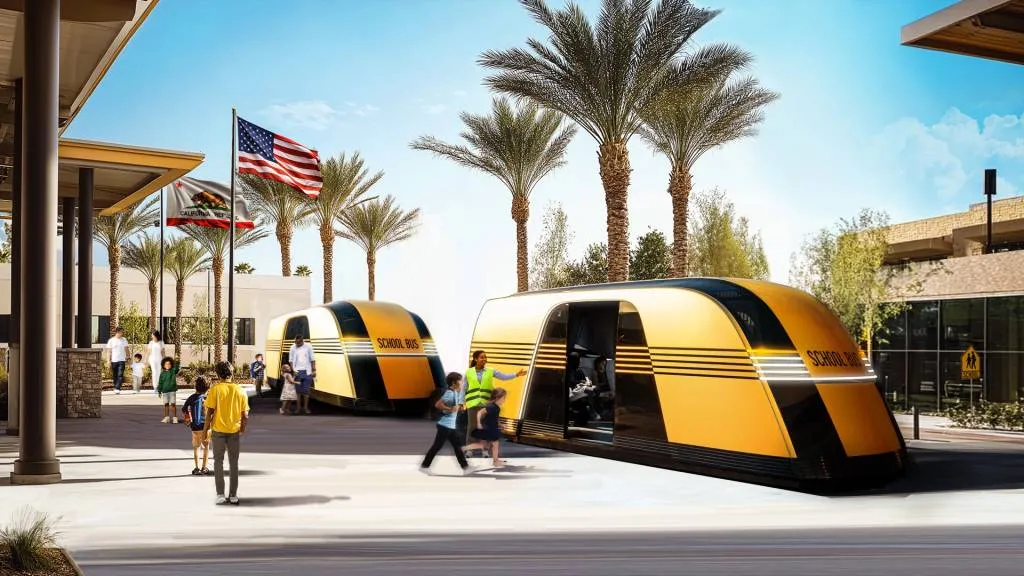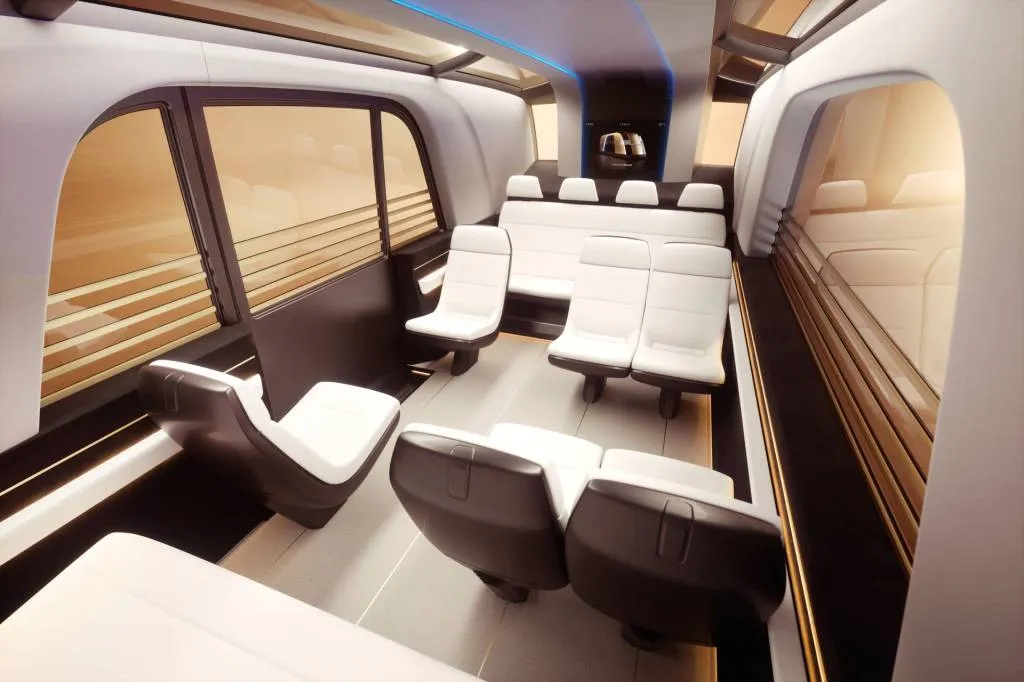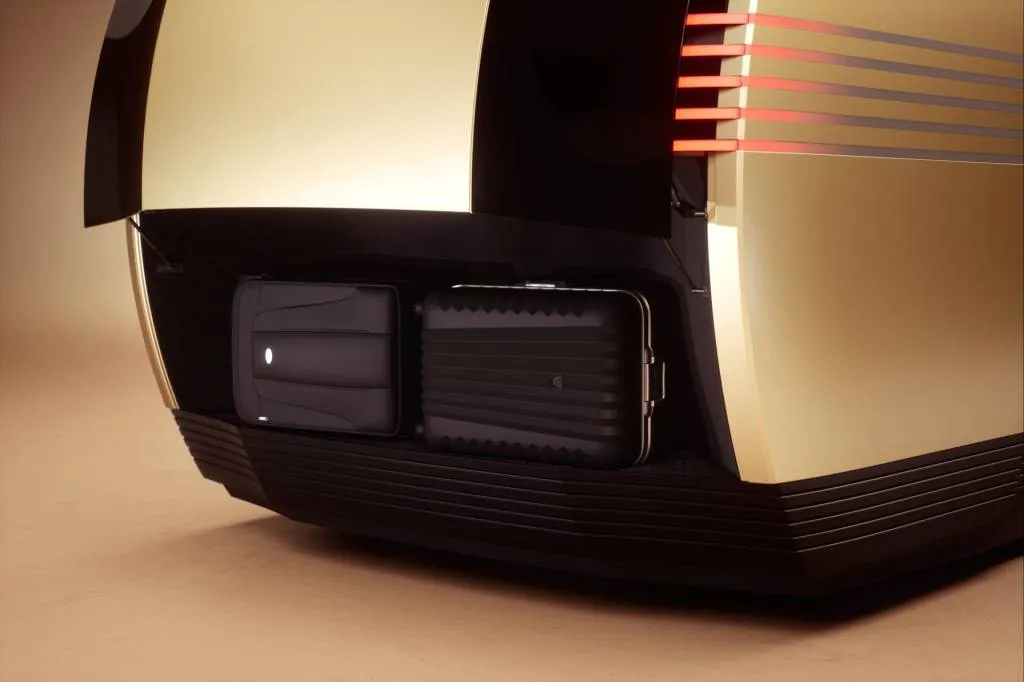Tesla Unveils Robovan and Cybercab Robotaxis
Tesla made headlines on Thursday with the unveiling of not only the Cybercab robotaxi but also the larger Robovan robotaxi. While the Cybercab is designed for two passengers in urban areas, the Robovan can accommodate up to 20 passengers, making it a suitable option for services that currently rely on minibuses and similar high-capacity vehicles.
During the reveal event, Tesla CEO Elon Musk projected that the Robovan could potentially cost as low as 5-10 cents per mile per person, a significant decrease compared to the $1 per passenger cost of current buses. The Robovan will be available for both private and fleet buyers, although Tesla has not disclosed the release date or pricing details. It is expected to launch after the Cybercab, which is set to debut before 2027 with a starting price below $30,000.

Tesla Robovan
The Robovan showcases a distinctive Art Deco-inspired design, a nod to the aesthetic of the 1920s and 1930s. Musk confirmed that the design will remain unchanged for production, hinting at potential variations tailored for cargo transport and other specific needs.
Similar to the Cybercab, the Robovan lacks a steering wheel and pedals, signaling Tesla’s commitment to autonomous driving technology. However, Tesla’s Autopilot with Full-Self Driving (FSD) system currently only ranks at Level 2 on the SAE scale of self-driving capability, requiring constant supervision.

Tesla Robovan

Tesla Robovan

Tesla Robovan
Musk announced plans for Autopilot with Full-Self Driving (FSD) to operate in unsupervised mode by next year, initially in California and Texas. The company also envisions launching the Tesla Network, an Uber-style ride-sharing service where owners of self-driving Tesla vehicles can contribute their cars to the fleet. Tesla may take a percentage of the revenue generated through the Tesla Network.
While Tesla forges ahead with its robotaxi ambitions, General Motors-backed Cruise initially had plans for a similar vehicle named the Origin robotaxi. However, Cruise recently shifted focus to next-generation Chevrolet Bolt EV-based robotaxis, abandoning the Origin concept.

